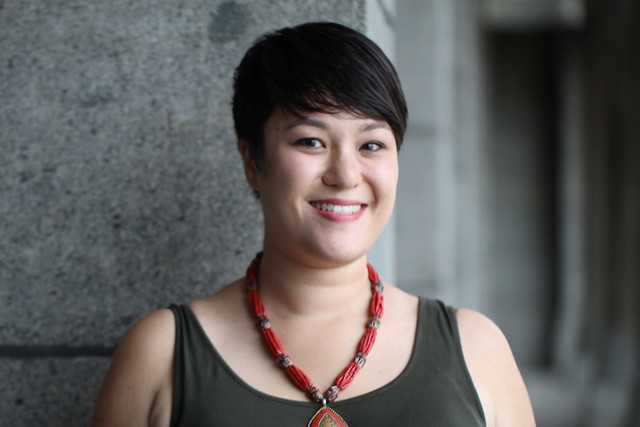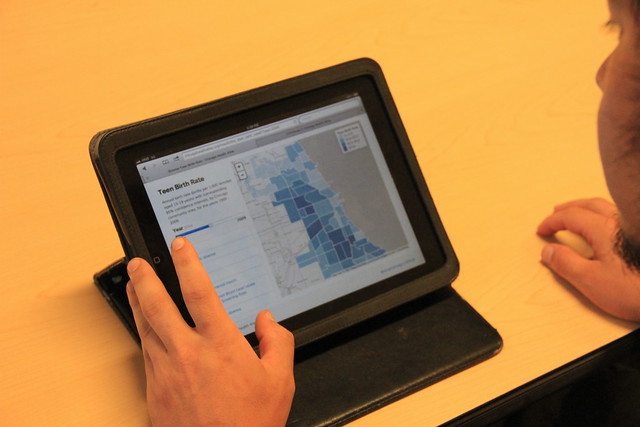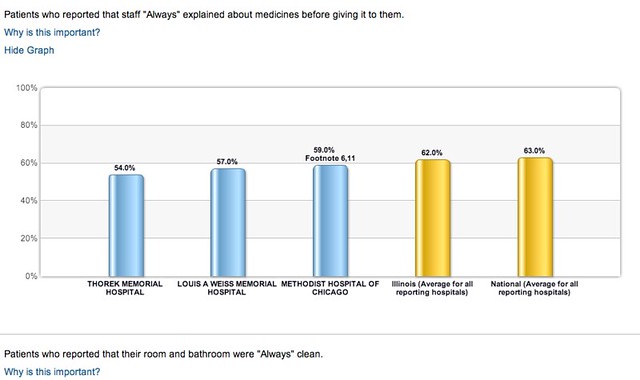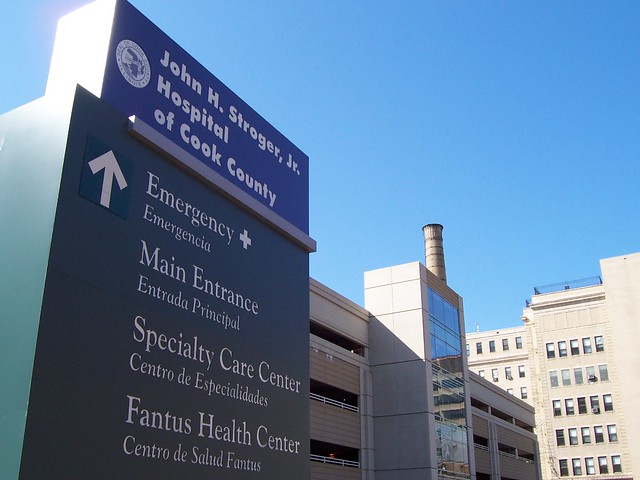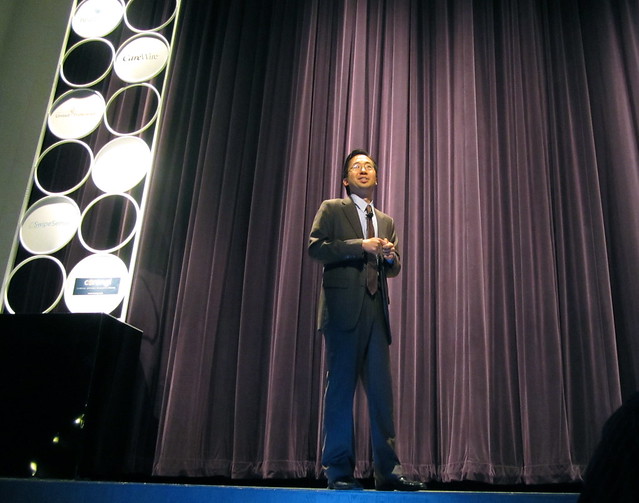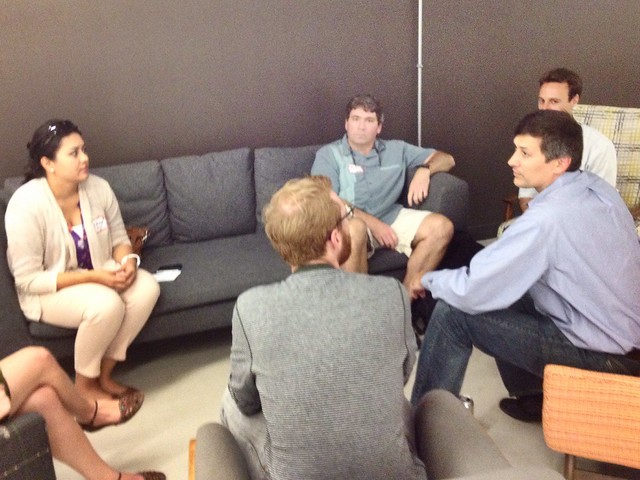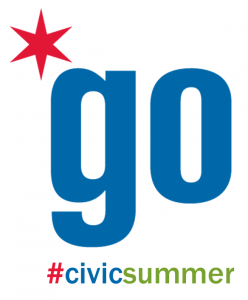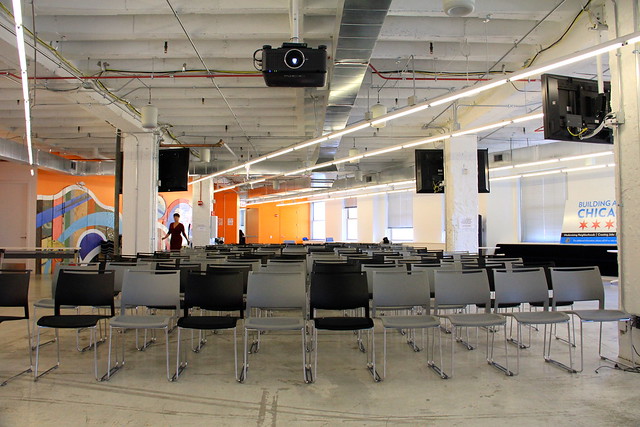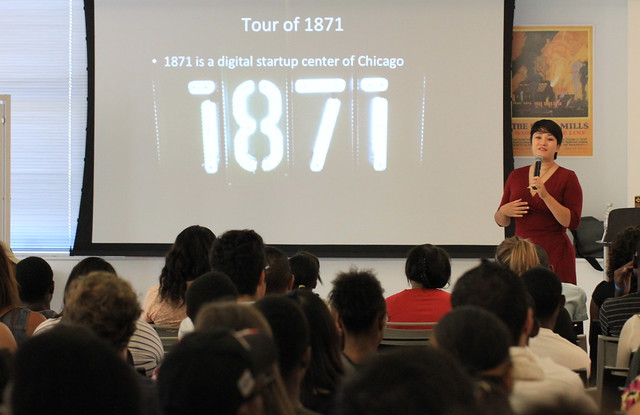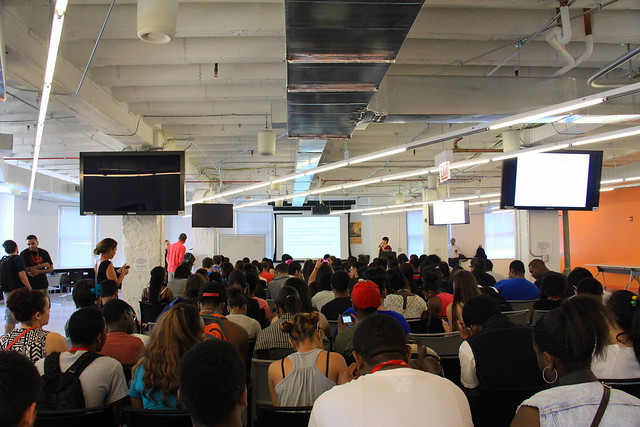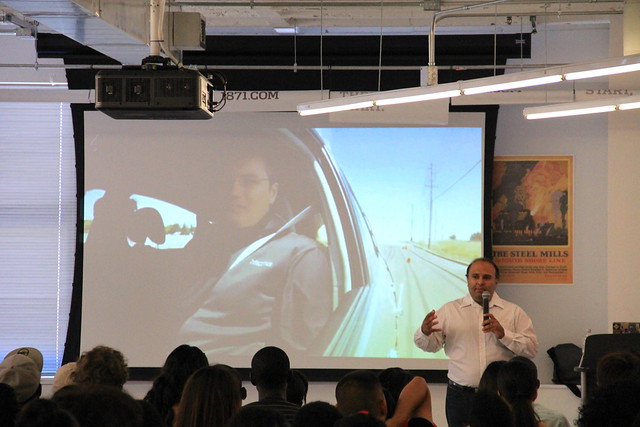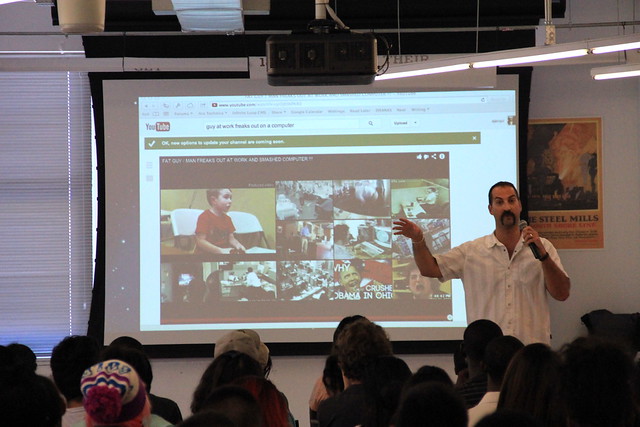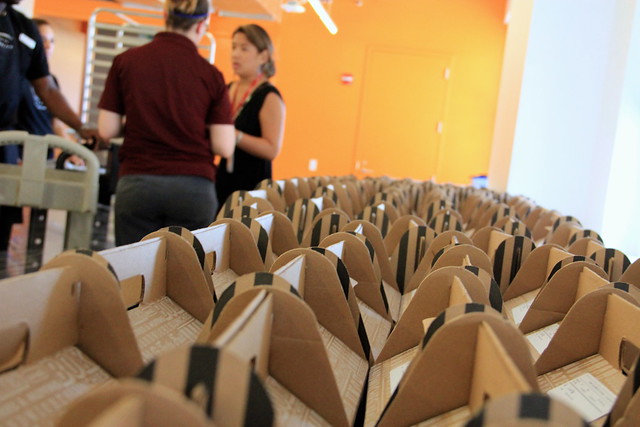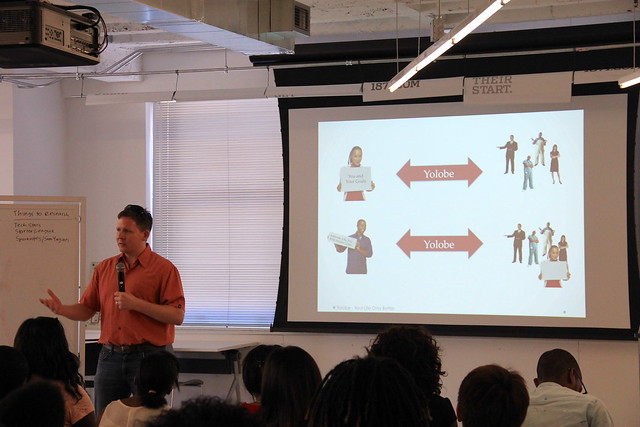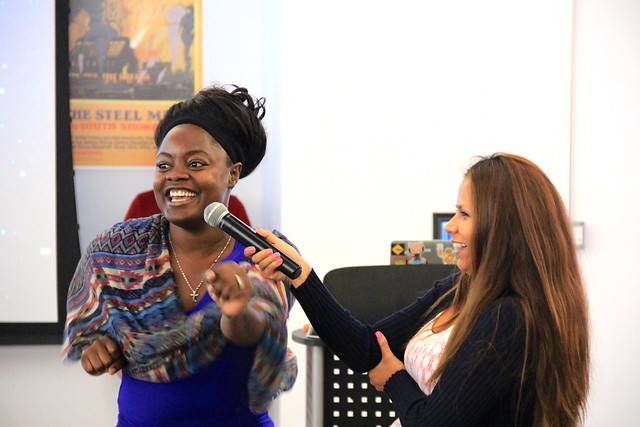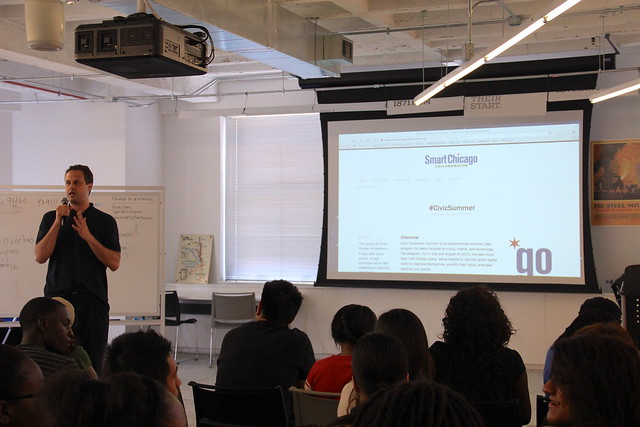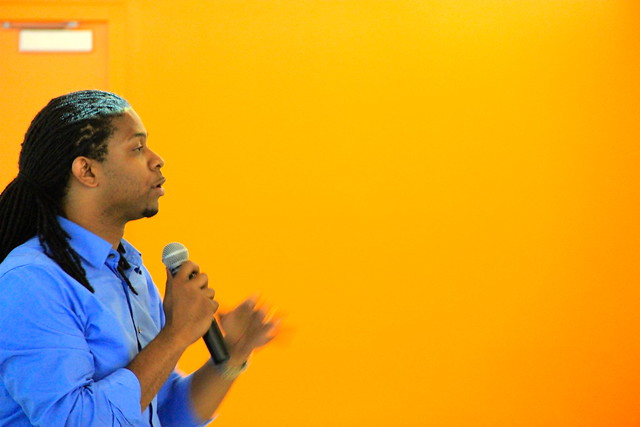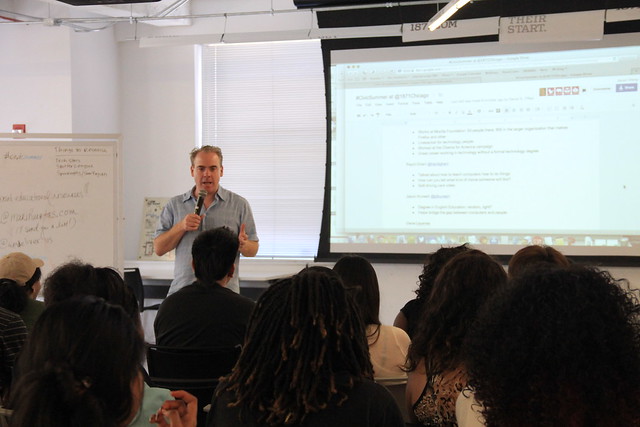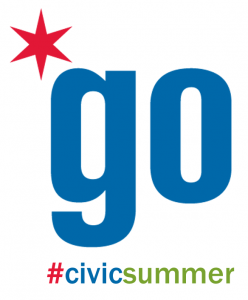 When we kicked off the first annual Civic Innovation Summer here in Chicago, no one knew what to expect. Starting in July, there would be ~150 high school- and college-age teenagers from across the city gathered together every Friday for six weeks in order to learn about technology and open data. Sounds deceptively simple until you start to ask the right questions: Who are these students? What kind of technology do they have access to in their everyday lives? What do they need to learn from us in order to take that next step in their academic or professional lives?
When we kicked off the first annual Civic Innovation Summer here in Chicago, no one knew what to expect. Starting in July, there would be ~150 high school- and college-age teenagers from across the city gathered together every Friday for six weeks in order to learn about technology and open data. Sounds deceptively simple until you start to ask the right questions: Who are these students? What kind of technology do they have access to in their everyday lives? What do they need to learn from us in order to take that next step in their academic or professional lives?
The students we taught this summer were brought together thanks to the Mikva Challenge, which develops the next generation of civic leaders, activists, and policy-makers; and Free Spirit Media, which provides education, access, and opportunity in media production. These organizations had done summer programs with Chicago youths in the past, but neither had experience joining forces to come up with a truly strong technology curriculum targeted at the average Chicago Public School student.
That’s where Smart Chicago stepped in to put together the first ever Civic Innovation Summer (more than 500 images here). Thanks to a grant from the John D. and Catherine T. MacArthur Foundation, as well as support from the Chicago Community Trust, the Smart Chicago Collaborative was able to develop and deliver an over-arching summer curriculum that would ultimately inspire students to be more curious, try more things, and become technologists in their own right.
But Jacqui, you’re not a teacher
First, let me tell my own story about how I got to be standing in front of ~170 people (students + staffers) every Friday for six weeks to teach them about technology. A lifelong nerd, I had recently become Editor at Large at renown online technology mag Ars Technica. I had previously been part of that amazing family of techno-journalists for 8 years (and before that, a back-end Web programmer), but I felt the itch to get more civically involved in my beloved city of Chicago. As the late Ron May once asked me while shoving a recorder in my face, “How can you be a technologist in Chicago but not be involved in Chicago?”

I touched base with Smart Chicago Collaborative Executive Director Daniel X. O’Neil, who is famed in the Chicago tech scene in his own right. Recognized as a co-founder of EveryBlock (R.I.P.) and the person who helped spearhead much of Chicago’s open data initiatives, Dan and I were able to combine forces to put together the kind of tech curriculum that public high school students are rarely exposed to. (I attended a public high school myself out in suburban Chicago, which itself had infinite resources compared to the students in the Chicago Public School system. Still, we barely had what one might consider to be “modern” tech education.)
Dan had some ideas for where he wanted the curriculum to go, and put me in charge of developing it into something we could teach over the course of the summer. This being the first time such a program had been put together here in Chicago, there were, unsurprisingly, some bumps in the road. But now that the program is over and school is on the verge of starting again, we feel confident looking back and saying that the first Civic Innovation Summer was a success, and we look forward to improving on it with the goal of reaching even more students in the future.
So what did we learn?
First, I should probably discuss what we ended up teaching. Part of the goal of Smart Chicago heading up Civic Innovation Summer (or as we’ve been calling it with the youths, #civicsummer) was to make the curriculum itself open: open to the students, open to the public, open to other organizations. As such, we chose to publish most of the Powerpoint presentations we created to go along with our sessions, so you’re free to check them out on the Smart Chicago website anytime.
Ultimately, we ended up having five four-hour Friday sessions with all ~150 students, and five customized two-hour sessions for each of the five different groups of students. Those groups consisted of:
A Juvenile Justice Council dedicated to addressing issues with incarcerated youth
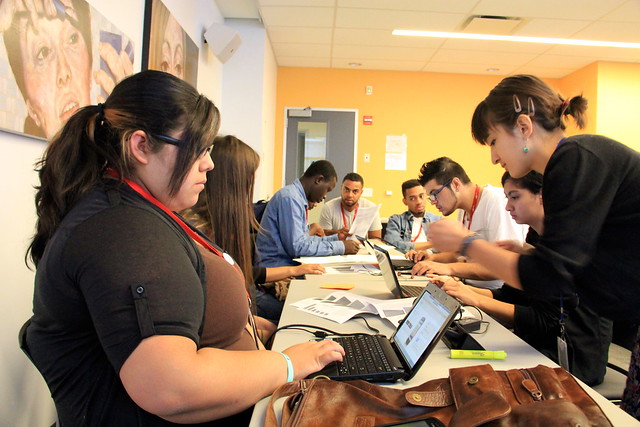
A Health Council dedicated to researching and proposing new ways to educate CPS students about (largely) sex and health

An Education Council dedicated to representing the voices of young people in today’s education debate
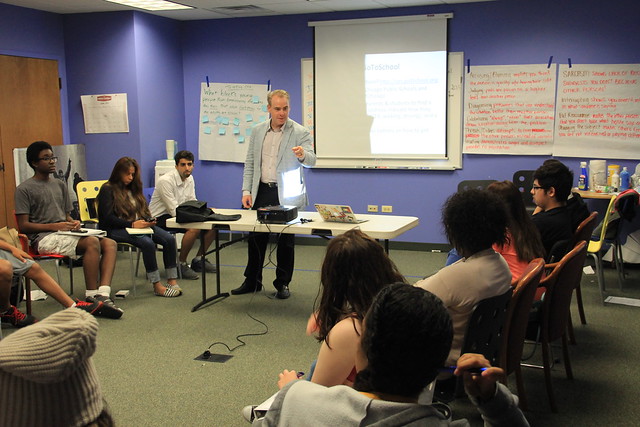
Aldermanic Fellows dedicated to highlighting the voice of youth in each of Chicago’s 50 districts
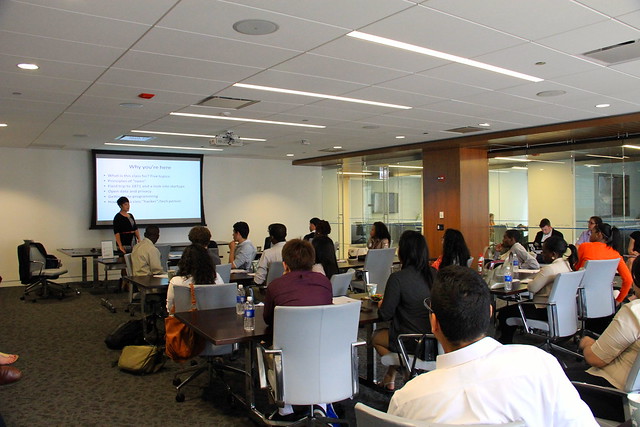
A Mayoral Youth Commission dedicated to interfacing directly with Mayor Emanuel

And a Documakers group dedicated to creating the kind of citizen journalism that is so necessary from our young people today
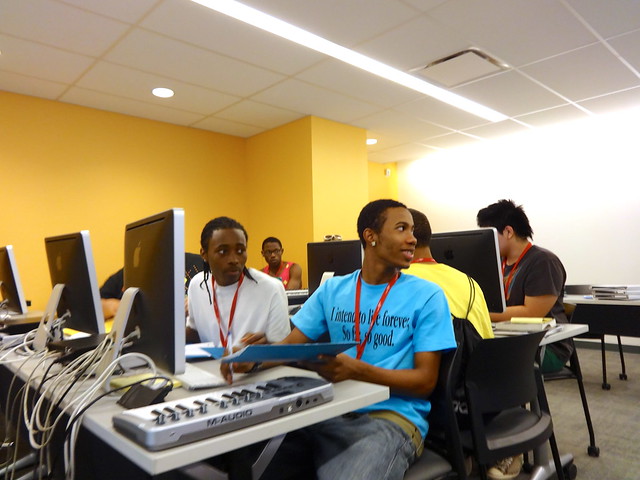
Each group brought its own perspective to #civicsummer; we were bombarded with questions related to each of their summer projects, and the students came to us with a wide range of technology experience. This made developing a once-a-week curriculum for the combined group somewhat challenging, and we ended up going off-Powerpoint many times in order to address the students’ wide range of technological needs.
Still, according to feedback from the students themselves, what we ended up with was a strong curriculum that provided an exciting baseline for teenagers looking to go further into technology, either academically or professionally. A session on coding HTML that we threw together on the fly thanks to changing computer resources ended up being the single most popular thing we did all summer–so many of the students praised the HTML session in their exit surveys that it’s almost worth exploring turning that into a summer program on its own.
The second most popular thing we did all summer was take the students on a tour of 1871, Chicago’s largest and most popular digital startup center. The students were enamored with seeing a workplace that was less of a boring office building and more of a creative space for tech people with new ideas.
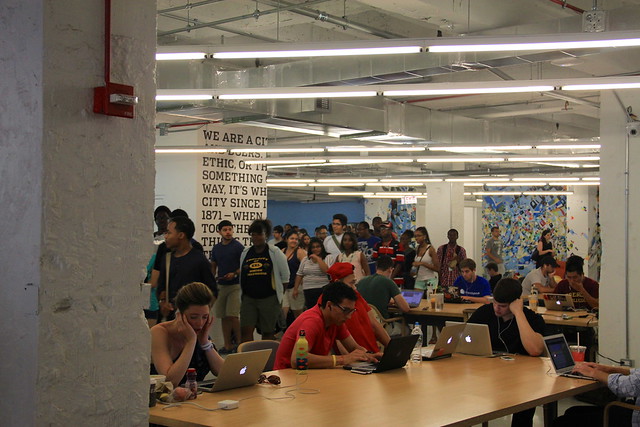
And finally, we were lucky enough to score some major speakers throughout the summer–Harper Reed, Clint Ecker, Dylan Richard, and Dan Carson topped the list for getting the students excited and engaged in learning how to manipulate technology in fun ways.
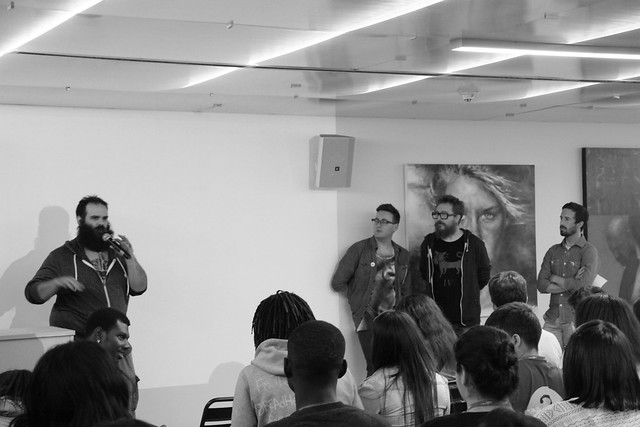
Speakers like project manager Mari Huertas, data analyst Rayid Ghani, UI/UX designer Jason Kunesh were also popular for answering questions about what they do and their own paths to working in technology. And I’m not just saying that: many students specifically named their favorite speaker (or speakers) from #civicsummer and requested more like them for the future.
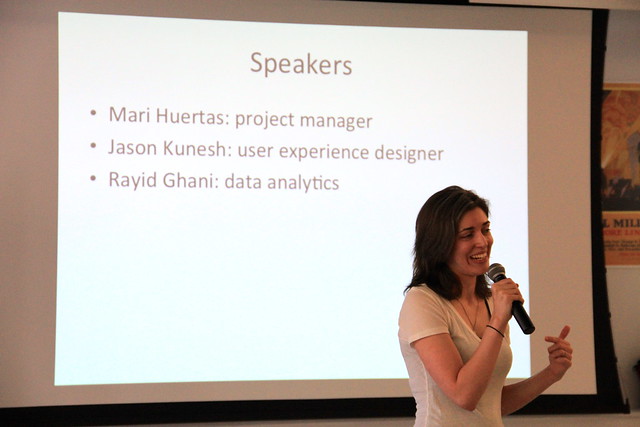
There were other things we learned, too. Namely, they were much more savvy about the Internet and privacy than we expected going in. Most of them were open to sharing their social media lives directly with us, and they were very in-the-know about privacy concerns and settings on the various social networks. We adults like to joke that young people today will be haunted by social media, but I think it’s more accurate to say that they’re making clear decisions about what they’re posting, how to control who sees it, and how to remove those posts when they’re ready. (There’s an argument to be made that our posts online are never fully removable, but students seem to be aware of that than most adults I know today.)
We also learned that students in general need a lot of interactive and video content–a lot. We went in prepared to do a number of university-style lectures, which ultimately wasn’t the best format for a group made of hundreds of teenagers. The lecture format could be better delivered if it’s constantly changing and engaging–the times we showed videos and/or broke into live Internet demos were certainly the most lively. Yet even better would be (more) ability to break the students into small workgroups, and to get the students in front of computers more often for live hands-on tech sessions. We hope to incorporate these things heavily into our planning for future programs like this.
Ultimately, we came out lucky. The students were a joy to work with and used peer policing in order to keep each other in check. And the students loved meeting each other–these smaller groups don’t usually get to interact much, and they were delighted by the ability to come together and meet other youths like them from across Chicago. On our last day, many asked: will we be doing #civicsummer again?
We’re planning on it. Stay tuned.
